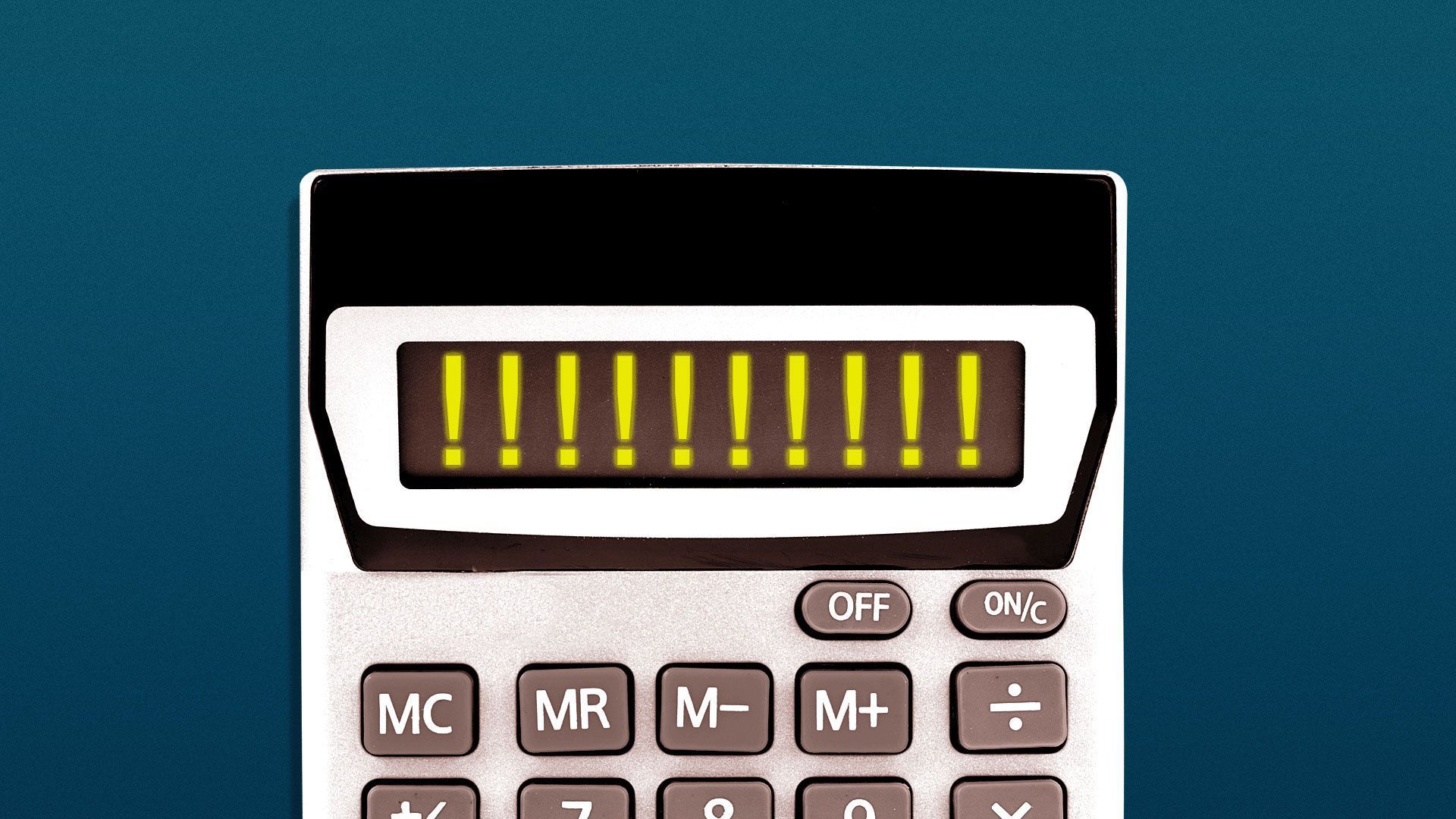Corporate debt issuance has already topped $1 trillion in 2020
Add Axios as your preferred source to
see more of our stories on Google.

Illustration: Eniola Odetunde/Axios
Barely five months into the year, U.S. investment-grade companies already have issued more than $1 trillion in debt — nearly as much as in all of 2019, which was well above average.
Why it matters: And buying shows no sign of letting up, thanks in large part to ultra-low interest rates and the Fed's promise of "no limit" purchases of Treasury, investment-grade corporate and even junk bonds.
What's happening: "Nearly $200 billion in debt has been issued in May so far as companies capitalize on growing risk-on attitudes," Bank of America research analysts said in a recent note to clients.
- After $273 billion of outflows from bond funds in March, money has raced back into fixed income with positive inflows every week since mid-April, data from the Investment Company Institute show.
What to watch: Despite warnings of widespread downgrades, defaults and bankruptcies from various ratings agencies, credit analysts and the Fed itself, bond spreads are narrowing, indicating bullishness from investors as more of the U.S. economy opens for business.
- "There's been a flood of issuance ... and the question is how much more can these spreads narrow," Subadra Rajappa, head of U.S. rates strategy at Société Générale, tells Axios. "My concern is that it seems like all this narrowing is a bit overdone."
Driving the news: Minutes from the Fed's latest policy meeting released Wednesday showed the central bank contemplating a program to cap the yields on short- and medium-term Treasuries known as yield-curve control — a policy employed by the Bank of Japan and Reserve Bank of Australia.
- That would ensure borrowing costs stay low and likely encourage even more debt issuance from companies.
What could go wrong: Already warning that the economic damage from the pandemic will be deep and long-lasting, the Fed's latest financial stability report highlights the risk added by the growing corporate debt binge to exacerbate the coronavirus-driven recession.
Of note: Highly indebted "zombie" companies — firms that don't earn enough revenue to pay the interest on their debt — are one out of every six U.S. companies and currently control nearly 2.2 million jobs.
Flashback: "High levels of corporate debt likely won’t cause an economic downturn, but they may accelerate one as highly leveraged companies fail, forcing layoffs, decreasing aggregate demand and creating a downward spiral of bankruptcies and further layoffs," the U.S. Joint Economic Committee wrote in October 2019.
- The committee cited Fed chair Jerome Powell himself, noting, “[a]highly leveraged business sector could amplify any economic downturn as companies are forced to lay off workers and cut back on investments.”
Go deeper: No, insurance doesn't cover that
